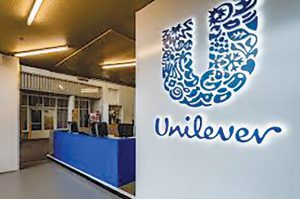Some things just don’t last long. On January 19, consumer goods giant Unilever Plc walked away from a deal that came to light just over the weekend. It declined to increase its 50 billion-pound ($68.2 billion) proposal to buy GlaxoSmithKline’s Plc’s consumer health arm.
Citing financial discipline is an elegant way for Chief Executive Officer Alan Jope to extract himself from a situation that alarmed many investors. Unilever lost about 10 billion pounds off its market capitalisation
between confirming the approach and its U-turn.
Although the deal was almost universally unpopular, it had merits: The acquisition would have taken Unilever into the fast-growing business of over-the-counter medicines. GSK’s Voltaren pain relievers and Centrum vitamins could have been easily pumped through Unilever’s distribution network, particularly in emerging markets. Disposing of food and refreshments at the same time would have rid Jope of more sluggish units.
Now he has to achieve a portfolio revamp alone. Jope’s has already acknowledged that Unilever’s current strategy isn’t working, and that he’d like to shift the company’s focus toward consumer healthcare. This will be a lot harder without the GSK brands and with its credibility among investors badly damaged.
As for next options, Jope could look to other targets. Reckitt Benckiser Group Plc, the British producer of health, hygiene and nutrition products, is the obvious alternative. But with a market capitalisation of about 45 billion pounds, assuming a typical 30% takeover premium, Reckitt would cost about 60 billion pounds. Yet this is the price GSK was mooted to have had in mind, and it was too rich for Unilever.
A better course of action would be to demerge or to sell the food and refreshment business entirely. On a simple sum-of-the-parts basis, Unilever’s beauty and home business could be worth around 123 billion euros ($140 billion). Its food unit on the other hand, which includes Magnum ice cream and Hellmann’s mayonnaise, could be worth about 53 billion euros. Even assuming 8-10 billion euros of value is lost from transaction fees and extra costs, the total gained from offloading food would still be ahead of Unilever’s current enterprise value of less than 140 billion euros. The idea is worth exploring.
A private equity group may be willing to take the low-growth but cash-generative food business off its hands. That would give Unilever more financial firepower for another opportunity like GSK’s consumer health business.
The CEO must convince investors that Unilever’s future is in consumer health — and that getting there will require more than disposals by degrees and bolt-on acquisitions. Otherwise, grinding out growth in a more difficult consumer environment, without much strategic room to maneuver, won’t be any fun.
—Bloomberg
 The Gulf Time Newspaper One of the finest business newspapers in the UAE brought to you by our professional writers and editors.
The Gulf Time Newspaper One of the finest business newspapers in the UAE brought to you by our professional writers and editors.
